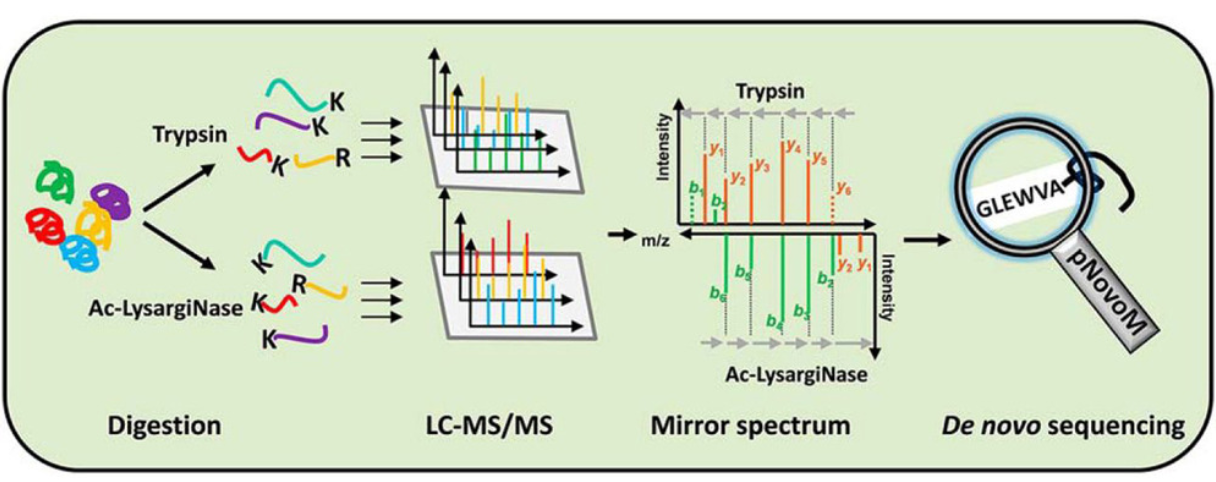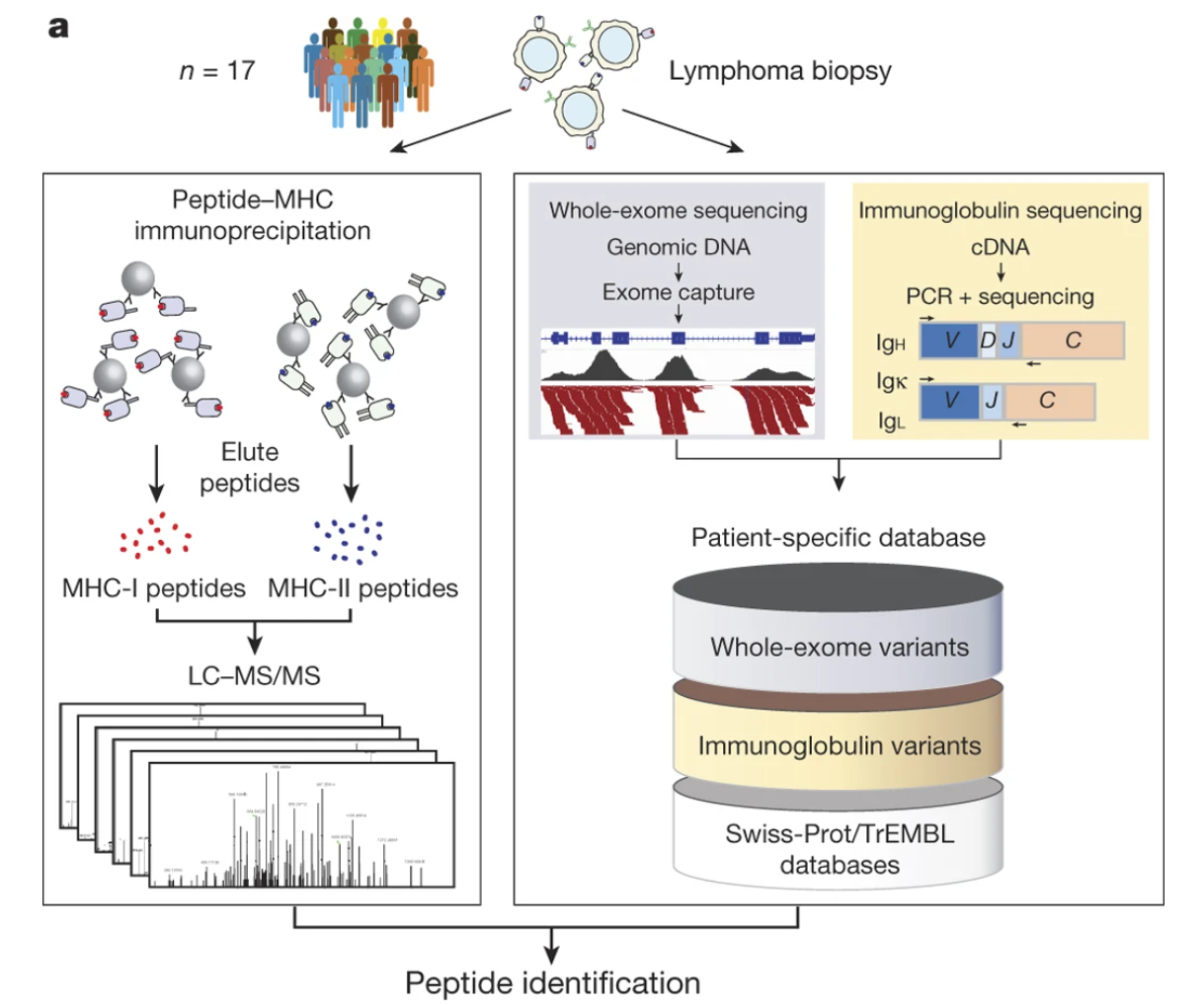De Novo Sequencing Mass Spectrometry Service
- Enables accurate sequencing of unknown proteins and peptides without relying on existing databases.
- Provides comprehensive analysis of post-translational modifications (PTMs), including phosphorylation and glycosylation.
- Utilizes advanced instruments like Orbitrap Fusion Lumos for high-resolution MS/MS data.
- De Novo Sequencing Mass Spectrometry Service handles complex samples with tailored workflows and expert bioinformatics tools.
- Ensures rigorous data validation for accurate and reproducible sequence identification.
- Compatible with various sample types, including purified proteins, digested peptides, and biological matrices.
- Backed by a team of experienced scientists, De Novo Sequencing Mass Spectrometry Service offers comprehensive support and data interpretation.
- Precise Peptide and Protein Sequencing: Identification of unknown proteins and peptides without reliance on existing databases.
- Comprehensive Post-Translational Modification (PTM) Analysis: Characterization of modifications such as phosphorylation, glycosylation, acetylation, and methylation.
- Therapeutic Antibody Sequencing: Accurate reconstruction of heavy and light chain sequences for antibody development and optimization.
- Proteome Exploration in Non-Model Organisms: Sequencing of proteins from unsequenced genomes, supporting evolutionary studies and comparative proteomics.
- Custom Solutions for Complex Samples: Advanced analysis for low-abundance peptides and difficult-to-sequence proteins using cutting-edge instrumentation and bioinformatics tools.
De Novo Sequencing Mass Spectrometry Service is a specialized approach that determines the exact amino acid sequences of peptides and proteins without relying on pre-existing databases. De novo sequencing mass spectrometry technique utilizes high-resolution mass spectrometry to analyze fragmentation patterns from peptides, enabling researchers to directly reconstruct sequences. Unlike traditional sequencing methods, which depend on matching experimental data to known sequences, de novo sequencing mass spectrometry is uniquely suited for identifying novel proteins, characterizing post-translational modifications (PTMs), and studying non-model organisms with unsequenced genomes.
De novo sequencing mass spectrometry is indispensable for antibody sequencing, where it helps reconstruct variable regions critical for therapeutic development. In proteomics, de novo sequencing mass spectrometry facilitates the discovery of novel proteins and biomarkers, especially in poorly annotated proteomes. Additionally, de novo sequencing mass spectrometry supports the identification of PTMs, providing insights into protein regulation and function. For evolutionary studies, de novo sequencing enables comparisons across species by identifying conserved and divergent sequences in uncharacterized organisms.
Service at MtoZ Biolabs
MtoZ Biolabs offers an advanced De Novo Sequencing Mass Spectrometry Service designed to provide precise and reliable sequencing solutions for peptides and proteins. The De Novo Sequencing Mass Spectrometry Service is tailored to meet the needs of researchers working with unknown or novel sequences, ensuring high-quality results even for the most challenging samples. With our expertise, state-of-the-art mass spectrometry platforms, and commitment to quality, MtoZ Biolabs ensures accurate and reproducible data to support breakthroughs in proteomics, drug discovery, and molecular biology.

Figure 1. Workflow for De Novo Sequencing Mass Spectrometry Service
Service Advantages
Applications
Our De Novo Sequencing Mass Spectrometry Service enables:
Case Study
Peptide Identification in Mantle-Cell Lymphomas Using De Novo Sequencing Mass Spectrometry
This study employed a combined de novo sequencing and database search strategy to identify MHC-bound tumor peptides in mantle-cell lymphomas. Peptides presented by MHC class I and II molecules were acid-eluted and analyzed using high-resolution mass spectrometry. Over 24,000 unique MHC-I peptides and 12,500 unique MHC-II peptides were identified through immunoprecipitation and mass spectrometry. By integrating de novo sequencing with database search, the method enhanced sensitivity and accuracy, enabling the identification of modified, mutated, and entirely novel peptides. This innovative approach highlights the potential of de novo sequencing mass spectrometry in discovering tumor-specific neoantigens and advancing immunotherapy.

Figure 2. Integrative Genomic and Proteomic Approach for Tumour Antigen Discovery
FAQ
Q: What measures are taken to guarantee the accuracy of your De Novo Sequencing Mass Spectrometry Service results?
Our De Novo Sequencing Mass Spectrometry Service ensures full sequence coverage and high accuracy, with each amino acid validated by multiple peptide fragments. Advanced algorithms and manual verification guarantee precise and reliable results.
Deliverables
1. Comprehensive Experimental Details
2. Materials, Instruments, and Methods
3. Relevant Mass Spectrometry Parameters
4. Detailed Information on Protein Sequencing
5. Mass Spectrometry Images
6. Raw Data
MtoZ Biolabs, an integrated chromatography and mass spectrometry (MS) services provider.
Related Services
Protein Full-Length Sequencing Service
How to order?







